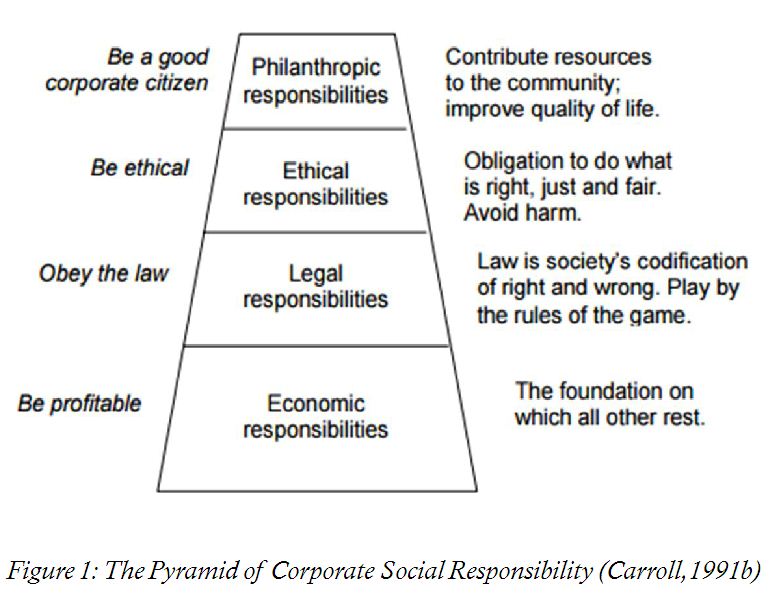|
Abstract Corporate Social Responsibility as a field was evolved in US in the early 70’s. From 90’s and to 2000, CSR went through a systematic conceptual change. Many companies in US came forward to use CSR as a tool to protect the planet for future generations and started realizing they can also give back to the community which will create a better image of the company in the public.Corporate Social Responsibility is an emerging field in India. Section 135 of the Companies Act, 2013 directed the Indian Companies to allocate funds for initiatives and projects for the betterment of the community. The Companies Act, 2013 has listed a number of areas that can be taken up by the companies for CSR. Many companies have started major and minor initiatives by tying up with various non-governmental organizations and welfare groups to address issues like poverty, child malnutrition and women empowerment. This conceptual paper discusses the evolution of CSR and development in India. It further emphasizes the need for streamlining Social Work strategies in CSR activities for ensuring sustainable development.Social workers can add value to the CSR action and create long and sustainable impact and advance societal goals. Keywords: Social Work, CSR in India, Sustainable Social Change Introduction “Corporate Social Responsibility is the continuing commitment by business to behave ethically and contribute to economic development while improving the quality of life of the workforce and their families as well as of the local community and society at large” (Lord Holmes and Richard Watts) Corporate Social Responsibility as a field was evolved in US in the early 70’s (Carroll, 2008). In that period, US was facing rampant poverty and unemployment in the communities and a paradigm shift was needed. More investments were required for addressing these issues and the government’s funds were not able to stay in the course. In the mid 80’s, companies were started providing food, job, housing, health to the needy people.. These initiatives of the companies lead to new waves in the business sector that created a sense of responsibility towards the people and society. Majorly they were giveaways or building more infrastructures. However, from the 90’s onwards(Carroll, 1999) this situation went through a systematic conceptual change and contributed to the concept Corporate Social Responsibility. Majorly there were three models in CSR: Carroll‘s model, Halal‘s model and Ackerman‘s model. According to Carrol (1991a) CSR is a four-layered pyramid model which can be called as the pyramid of responsibilities. Halal’s model of CSR states that a firm can only attempt to form a workable coalition among groups having diverse interests, engaged in creating value for distribution among members of the coalition. The social issues may become conflicting beyond a certain level of economic activity (Halal, 2000).
Ackerman’s model defines CSR in three different phases; First phase –The top management of the company recognizes the social issue or issues prevalent in the community. Second phase – The company appoints staff to understand the social problem and they develop suitable measures to tackle it. Third phase –The plan made by the specialists is implemented(Ackerman and Bauer, 1976) The European Union defines Corporate social responsibility (CSR) refers to companies taking responsibility for their impact on society. Corporate Social Responsibility is considered as a tool to create positive presence in the community. Therefore, the CSR actions impact the community in a positive manner in terms of development as well as business (Kumar, 2015). Burke Lee and Jeanne M. Logsdon (1996) suggests that there are five dimensions of corporate strategy - Centrality, Specificity, Proactivity, Voluntarism, and Visibility.Strategic CSR actions should shape firm‘s image and generate visibility and positive media attention. CSR can be explained as a virtuous action of a responsible corporate citizen and a value creating proposition for strategic brand building exercise (Deodhar, 2015). Corporate Social Responsibility in India CSR in India has traditionally been seen as a philanthropic activity. And in keeping with the Indian tradition, it was an activity that was performed but not deliberated. As a result, there is limited documentation on specific activities related to this concept. After the Globalization, CSR in India has moved from institutional building (educational, research and cultural) to community development through various projects. Also, with global influences and with communities becoming more active and demanding, there appears to be a discernible trend, that while CSR remains largely restricted to community development, it is getting more strategic in nature (that is, getting linked with business) than philanthropic, and a large number of companies are reporting the activities they are undertaking in this space in their official websites, annual reports, sustainability reports and even publishing CSR reports. The Companies Act, 2013 has introduced the idea of CSR to the forefront and through its disclose-or-explain mandate, is promoting greater transparency and disclosure. Schedule VII of the Act, which lists out the CSR activities, suggests communities to be the focal point. On the other hand, by discussing a company’s relationship with its stakeholders and integrating CSR into its core operations, the mandate suggests that CSR needs to go beyond communities and beyond the concept of philanthropy. The Section 135 clearly states that all the companies in India had to spend at least 2% of its average net profit for the immediately preceding three financial years of their money towards one cause or multiple causes. Companies which have a net worth of Rs 500 crore or a turnover of Rs 1,000 crore or net profit of Rs 5 crore has started allocating funds to CSR and they realized that they can also give back to the community which will create a better image of the company in the public. Corporate Social Responsibility has emerged as an area after the proclamation by the Government of India that CSR is mandatory for the companies irrespective of whether they are public or private with regard to criteria’s listed in Companies Act, 2013. The CSR department of every company has allocated money to spend in each financial year. While doing CSR activities, each company having their own strategy for implementation. Some organizations started their own foundation/ organization to co-ordiante and implement CSR activities ( Reliance Foundation, Azim Premji Foundation, Ratan Tata Trust etc). Some companies are partnering with other well known NGO’s in the field to allocate the stipulated money and those NGO’s will carry forward the CSR activities as per the norms. In India, Many companies are doing their CSR activities effectively, which tried to touch the core issues of human life. An analysis by Institutional Investor Advisory Services (IIAS) show that the top 100 listed companies of India spent a cumulative amount of Rs 5,240 crore in corporate social responsibility (CSR) activities in the financial year 2014-15, up from Rs 3,000 crore in the previous financial year. The largest shares of CSR spend goes to activities related to hunger, poverty, healthcare, education and environmental sustainability. Those Activities aimed at rural development, reducing inequalities, sports and national heritage conservation. (Hindu, 2016). On the other hand, the major issue to be addressed is there were very few initiatives from NGO’s as well as other partners of CSR departments to have a dialogue on the critical and multifaceted issues of rural India and create a policies, plans and programmes based on the need assessment. In some cases, CSR activities will be undertaken by the partnering organizations only because of the fund allocation other than the needs of the community. There were incidents where NGO’s print flux boards for providing environmental awareness to spend the allocated money .These kind of paradoxical situations exists in this field and this condition needs to be changed. It’s clear that the larger impact to be made only through incorporating social and ethical perspectives and plan programs based on these perspectives. This will increase impact in the community and create long term change. CSR initiatives of the companies must be based on the focus on long term change based on the needs of the communities. Social Work in India Social work is a practice-based profession and an academic discipline that promotes social change and development, social cohesion, and the empowerment and liberation of people. Principles of social justice, human rights, collective responsibility and respect for diversities are central to social work. Underpinned by theories of social work, social sciences, humanities and indigenous knowledge, social work engages people and structures to address life challenges and enhance wellbeing. (IFSW,2014). Over the 80 years, Social Work profession touches the lives of thousand individuals through our professional expertise. Backed up with our scientific knowledge, social workers help the people to solve the problems by themselves and act as a Catalyst in social change. Our Profession strive towards the integration of classroom learning to a field exposure. The theoretical aspects which we learned in the classroom will use in the practice level of our profession. This is one of our signature pedagogy which contributes immensely for the development of our profession. While act as a Catalyst in the Society, Social Workers can contribute greatly towards the CSR activities. Social Workers are the key persons who have been closely interacting with the wide varieties of communities. They can definitely play a great role in channelizing CSR activities to the needy people. They can assess, develop, implement, monitor and report the CSR activities which are one of the Core areas of CSR activities. We will look into the various roles can be played by a Social Worker in CSR activities. Role of Social Workers in CSR The Companies Act, 2013 has introduced the idea of CSR to the forefront and through its disclose-or-explain mandate, is promoting greater transparency and disclosure. Schedule VII of the Act, lists out the CSR activities and suggests communities to be the focal point and insists that CSR needs to go beyond communities and the concept of philanthropy. It will be interesting to observe the ways in which this will translate into action at the ground level, and how the understanding of CSR is set to undergo a change. Some of the listed activities under schedule VII that falls within the Social Work domains are as follows:
The methods adopted to fulfill the goals of social work are targeting the individuals, groups and communities. The practice is focused on the micro, messo and macro level. The goals of CSR can be achieved only by using the professional methods tested, proved and practiced to fulfill goals of professional social work. Thus CSR programmes can be well formulated, designed, implemented, monitored and evaluated by using the primary and secondary methods of social work. The shift of CSR activities from philanthropic activities to community development and beyond has furthered the scope for social workers especially with the corporate world. Many qualified social workers are offered opportunities to perform within the corporate setting. Professional Social Workers given such kind of opportunities are demonstrating their best practices and are gradually changing the attitude of corporate leaders. They are able to abide to the professional values, ethics and principles and are able to make a difference in the field of profit sector. They are able to help corporates to design and implement projects that are based on core competence of the company and are able to achieve social capital and generating improved business health. This not only increases the scope for social workers but also brings recognition to our profession. Social workers can redirect CSR actions of the company in such a way that it can determine the social responsibility. Social workers can add value to the CSR action and create long and sustainable impact and advance societal goals (UNGC, 2012). Although companies are under the mandate for implementing CSR activities, it is possible to link CSR activities on a win-win strategy utilizing the core competency of the company. Social workers can understand the core competence of the company and can suggest innovative CSR actions that will mutually help the company, social workers, the employees, investors, customers and the general public at large. Such innovative actions can help companies to establish social capital and also build up better credibility among the general public. Social workers given opportunity to serve in corporate houses need to be very critical in abiding to the values, ethics and principles of social work and it is the ample opportunity to prove our profession before the profit sector. This provides the scope for elevating our profession to a recognized level. Social work professionals offered opportunity to work with profit sector in their CSR projects need to demonstrate the following ten core competencies of social work profession (CSWE, 2008). Optimal utilization of these ten core competence of social work profession can elevate social work profession to be well recognized by others. It can also lead to assisting the companies to develop and implement best innovative CSR activities. The ten core competencies approved by the Council on Social Work Education (CSWE, 2008) as required for a professional social worker are as follows:
Conclusion Professional social workers employed in the corporate sector need to identify core competencies of the company and should ensure the CSR activities are targeted towards mutual long term benefits achieving the core competencies of the corporate. They can greatly contribute in co-ordinating the CSR activities of the companies in terms of assuring the sustainability of the implemented programme. They can also look into the designing the programme, implementation, monitoring and reporting They can apply the principles, skills and techniques in their operational area to achieve the best from the CSR activities. The interventions which they suggest will be based on the true need assessment and those initiatives can directly deal with the core issues of that areas. It’s obvious that Social Workers can play a pivotal role in changing the scenario of the future CSR activities and it’s their role to do so. References
Mr. Lims Thomas Assistant Professor, Department of Social Work, St.Thomas’ College (Autonomous), Thrissur, Kerala, India. Mr. Akhil S Kumar Tata Institute of Social Sciences- Fellow,Tata Motors Ltd, Sanand, Gujarat. |
Categories
All
Social Work Learning Academy50,000 HR PROFESSIONALS ARE CONNECTED THROUGH OUR NIRATHANKA HR GROUPS.
YOU CAN ALSO JOIN AND PARTICIPATE IN OUR GROUP DISCUSSIONS. MHR LEARNING ACADEMYGet it on Google Play store
|
SITE MAP
SiteTRAININGJOB |
HR SERVICESOTHER SERVICESnIRATHANKA CITIZENS CONNECT |
NIRATHANKAPOSHOUR OTHER WEBSITESSubscribe |
MHR LEARNING ACADEMY
50,000 HR AND SOCIAL WORK PROFESSIONALS ARE CONNECTED THROUGH OUR NIRATHANKA HR GROUPS.
YOU CAN ALSO JOIN AND PARTICIPATE IN OUR GROUP DISCUSSIONS.
YOU CAN ALSO JOIN AND PARTICIPATE IN OUR GROUP DISCUSSIONS.
|
|









 RSS Feed
RSS Feed





